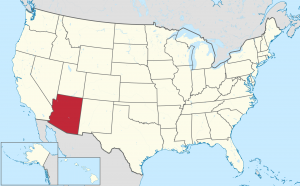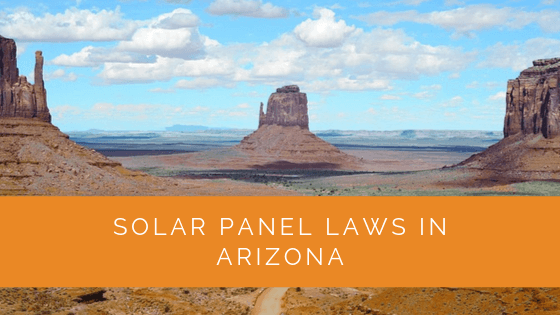Arizona is the latest state in the United States to make its solar panel laws flexible by proposing new rules for energy storage. The rules include installing solar cells, storing energy through solar panels, and installing various clean energy systems. The ACC, or Arizona Corporation Commission, recently drafted this law after going through the interconnection standards for almost 13 years. The board members said the interconnection rules were the biggest hindrances to introducing solar panel laws.
Contents
Key Takeaways
- Arizona has introduced flexible solar panel laws, allowing for the installation of solar cells, energy storage through solar panels, and various clean energy systems. These changes aim to overcome previous hindrances and promote the use of solar power.
- Arizona plans to reach a 2.25% Renewable Portfolio Standard (RPS) solar carve-out, encouraging the use of solar power for electric utilities. Failure to meet this objective may result in penalties, but it offers homeowners quicker payback times and improved financial returns.
- Arizona’s new solar panel laws are not only about using cleaner energy but also aim to boost the state’s economy by reducing reliance on electric utilities. This change is praised for its potential to stimulate solar cell manufacturing and promote emerging technologies in the solar energy sector.
Overcoming the Challenges in Arizona
 The interconnection rules became a significant issue over the last few years that stopped Arizonians from using solar power. It stopped them from installing clean energy technologies because they came with a complicated setup and required various procedures. This system was expensive and time-consuming, to say the least.
The interconnection rules became a significant issue over the last few years that stopped Arizonians from using solar power. It stopped them from installing clean energy technologies because they came with a complicated setup and required various procedures. This system was expensive and time-consuming, to say the least.
However, with the recent change in the solar panel laws, Arizona now has an RPS solar carve out of 2.25% that they plan to reach. This means that Arizona will have to use its electric utilities to generate at least a minimum amount of power from the sun. If they cannot meet their objectives, they may have to pay stiff penalties for not complying with the laws.
Living in a state with bigger solar carve-outs is an advantage. It means the state has a better opportunity to earn more incentives, thanks to the utilities used by the homeowners. This will help to get quicker payback times and also have improved financial returns on investment of solar panels in Arizona. So, if you buy a house in Arizona that runs on solar power, you may have to pay a little more initially because of the establishment costs; however, the amount of money you will save in the long run through utility costs will make up for your investment.
Better Electricity standards
Over the years, Arizona has relied on natural resources to produce electricity. However, with the change in the solar panel law, the experts believe that the state would finally contribute to a greener environment. This law change puts Arizona at par with the other states, implementing rules and regulations for making solar panels compulsory. The Arizona Corporate Commission believes that the new law will offer more options to homeowners when it comes to adopting cheaper and cleaner energy.
Although the regulatory body still believes that it will take some time to have all the residents on the same page, they are hopeful that people will understand the benefits sooner than later. Moreover, they are also promoting the introduction of solar panels because people can save money in the long run. For example, if people pay approximately $10,000 extra on an apartment now, they may be able to save more than $19,000 over the next 25 years.
The Arizona Corporate Commission also mentioned that their next step is to get written files and comments from interested parties after the new solar panel laws become applicable. This will include the real estate companies, the Fortune 500 companies, and the leaders in various industries. It will help to understand the decisions of the people who contribute to the economy of Arizona. The Arizona Corporate Commission also plans to hold an oral proceeding addressing the public about the new changes in the solar panel laws.
Bigger and Better Economy
 The new law is not just an initiative to use cleaner energy. It is also a way to improve the economy of the state. With the residents shifting to solar power, it will reduce the state’s investment in electric utilities. This will help save thousands of dollars every month, resulting in millions at the end of the year. SWEEP, or the Southwest Energy Efficiency Project, also showed appreciation after the recent solar panel law changes. They lauded the decision of the state to cut through the red tape and come to a decision that is helpful for the state and the residents.
The new law is not just an initiative to use cleaner energy. It is also a way to improve the economy of the state. With the residents shifting to solar power, it will reduce the state’s investment in electric utilities. This will help save thousands of dollars every month, resulting in millions at the end of the year. SWEEP, or the Southwest Energy Efficiency Project, also showed appreciation after the recent solar panel law changes. They lauded the decision of the state to cut through the red tape and come to a decision that is helpful for the state and the residents.
The Southwest Energy Efficiency Project believes the new rules come with the latest and most cutting-edge policies in the United States. This law will help emerging technologies and give solar cell manufacturers a massive boost. The US saw a slump in the production of solar cells and panels from 2014 to 2017 because there was no mandatory law for using them. But now, with most states making solar energy compulsory, it will also help new and old solar panel manufacturers to a great extent.
The new rules for solar energy will extend broadly and will not be limited to using battery storage options only. They will also include technologies, such as combined heating. The Arizona Corporate Commission says that combining combined heating with solar panels will help reduce the overall cost of distributed energy, especially for the ongoing construction projects in Arizona. The industrial Program Director of Southwest Energy Efficiency Project, Neil Kolwey, also mentioned that the change will encourage people to use solar energy in their homes.
He also described how solar energy projects and interconnection standards can coexist without interrupting each other’s services. Neil Kolwey thinks it will eventually make both projects easier and cheaper in the long run. This is because they will already figure out ways to bypass the additional costs in the interconnection standards and use the money on solar power to complete the job.
Although everything may not happen overnight, the state still hopes that the residents will understand why the mandate is necessary. The Arizona Corporate Commission said they don’t expect all residents to immediately shift to solar power. Instead, they want the construction companies to use solar panels right from constructing a building or house. So, when people want to buy an apartment or commercial properly, they will have no choice but to use solar energy instead of traditional electrical utilities that take up a chunk of natural resources.
Experience Solar Excellence with Us!
Trust in Solar Panels Network USA, where our seasoned experts deliver top-quality solar solutions for homes and businesses nationwide. With a legacy of countless successful installations and a commitment to sustainable energy, we’re your reliable partner in the solar journey. Ready for a brighter, eco-friendly future? Call us now at (855) 427-0058 and harness the power of the sun!
Map image by Wikimedia Commons User: TUBS / CC-BY-SA-3.0
About the Author
Solar Panels Network USA stands at the forefront of solar energy solutions, driven by a team of seasoned solar engineers and energy consultants. With over decades of experience in delivering high-quality solar installations and maintenance, we are committed to promoting sustainable energy through customer-centric, tailored solutions. Our articles reflect this commitment, crafted collaboratively by experts to provide accurate, up-to-date insights into solar technology, ensuring our readers are well-informed and empowered in their solar energy decisions.

